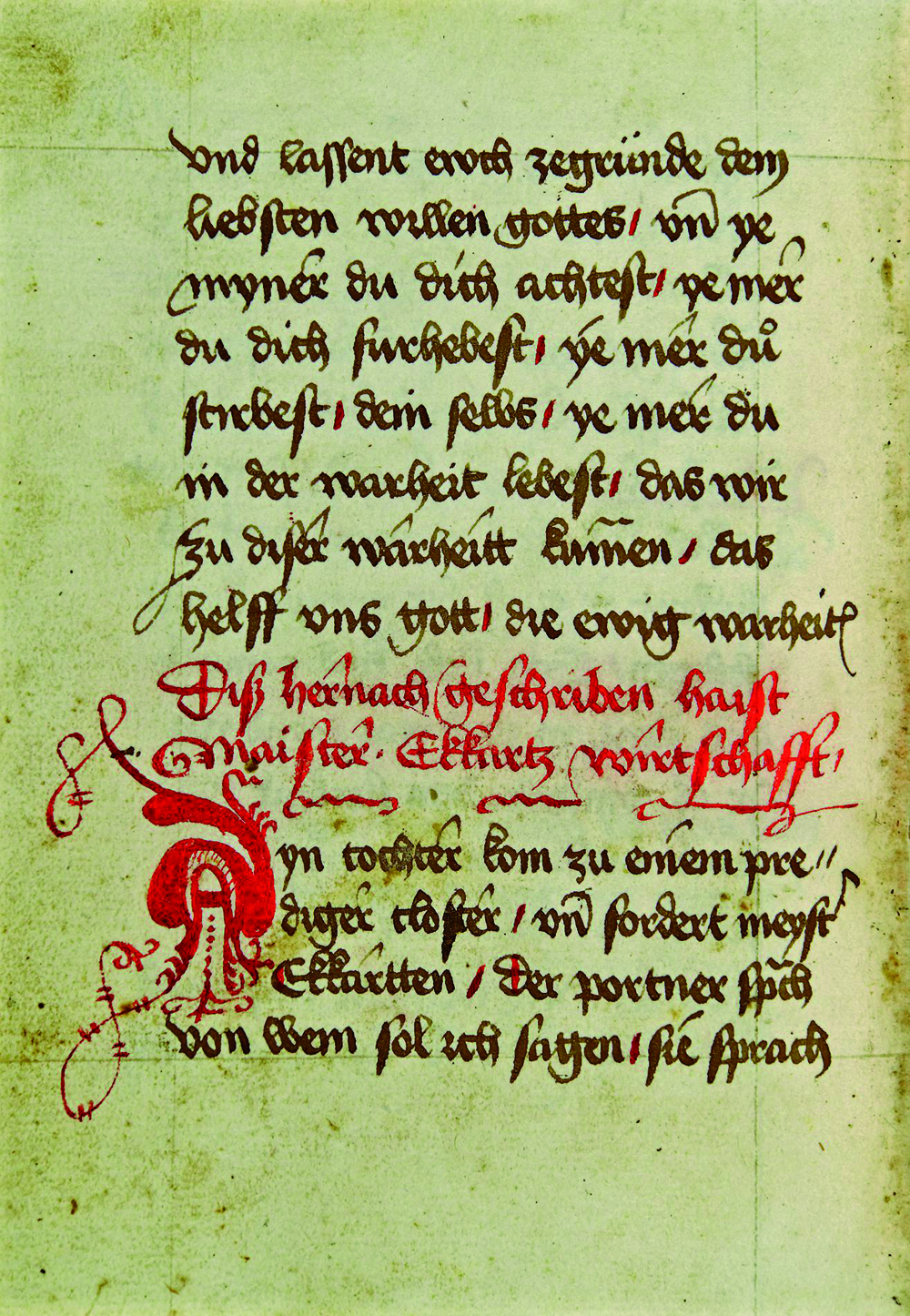Johannes Eckhart nejznámější citáty
Johannes Eckhart citáty a výroky
Zdroj: [Mistr Eckhart, Harper and Brothers, New York, 1941], citace a zdroj převzaty z FROMM Erich, Umění milovat, Nakladatelství Josefa Šimona, Praha 1996, ISBN 80-85637-26-X

Johannes Eckhart: Citáty anglicky
Sermon VII : Outward and Inward Morality
Meister Eckhart’s Sermons (1909)
Meister Eckhart: A Modern Translation (1941) by Raymond Bernard Blakney, p. 240
Sermon 9, as translated in The Reading and Preaching of the Scriptures in the Worship of the Christian Church (1999) by Hughes Oliphant Old, Ch. 9: The German Mystics, p. 449
“If a man had no more to do with God than to be thankful, that would suffice.”
However a quote very similar to this one can actually be found in his works. In Sermon XXVII (Walshe translation/in Quint Sermon XXXIV) we can read:
Middle High German: Haete der mensche niht me ze tuonne mit gote, dan daz er dankbaere ist, ez waere genuoc.
Disputed
“If "thank you" is the only prayer you can utter in your lifetime, that would be enough.”
Very commonly attributed to Eckhart on the internet and some publications, the source of the first formulation however is: A Bucket of Surprises (2002) by J. John and Mark Stibbe.
Disputed
“God wants nothing of you but the gift of a peaceful heart.”
As translated in The Enlightened Mind: An Anthology of Sacred Prose (1991) edited by Stephen Mitchell, p. 115
Circulated on the Internet, this is an amended version of a quote from Eckhart's sermon iusti vivent in aeternum: There are simple people who imagine they are going to see God as if He were standing here and they there. This is not true. God and I are one.
Middle High German: “Sumlîche einveltige liute wænent, sie süln got sehen, als er dâ stande und sie hie. Des enist niht. Got und ich wir sîn ein.”
Disputed
“The knower and the known are one.”
Widely circulated on the Internet, but no actual text to tie it back to Eckhart.
Disputed
Quoted by Aldous Huxley, in The Perennial Philosophy https://archive.org/details/perennialphilosp035505mbp (1945)

